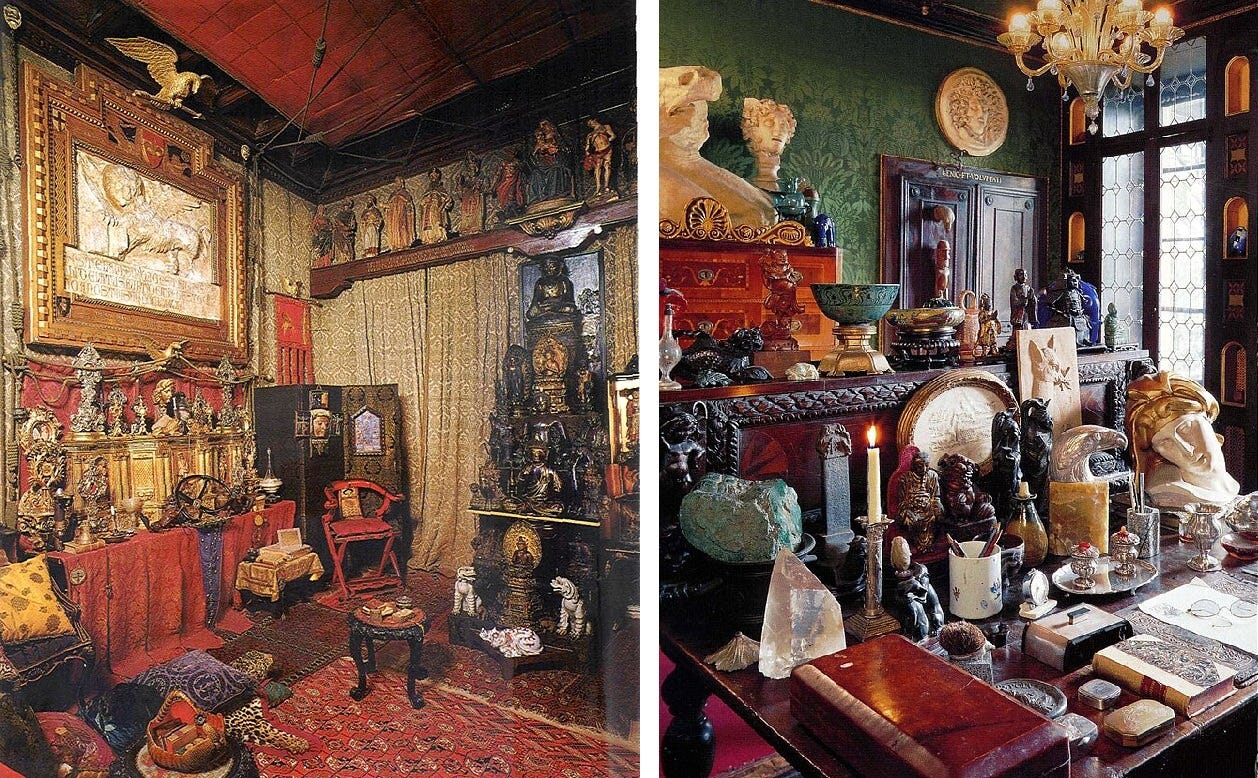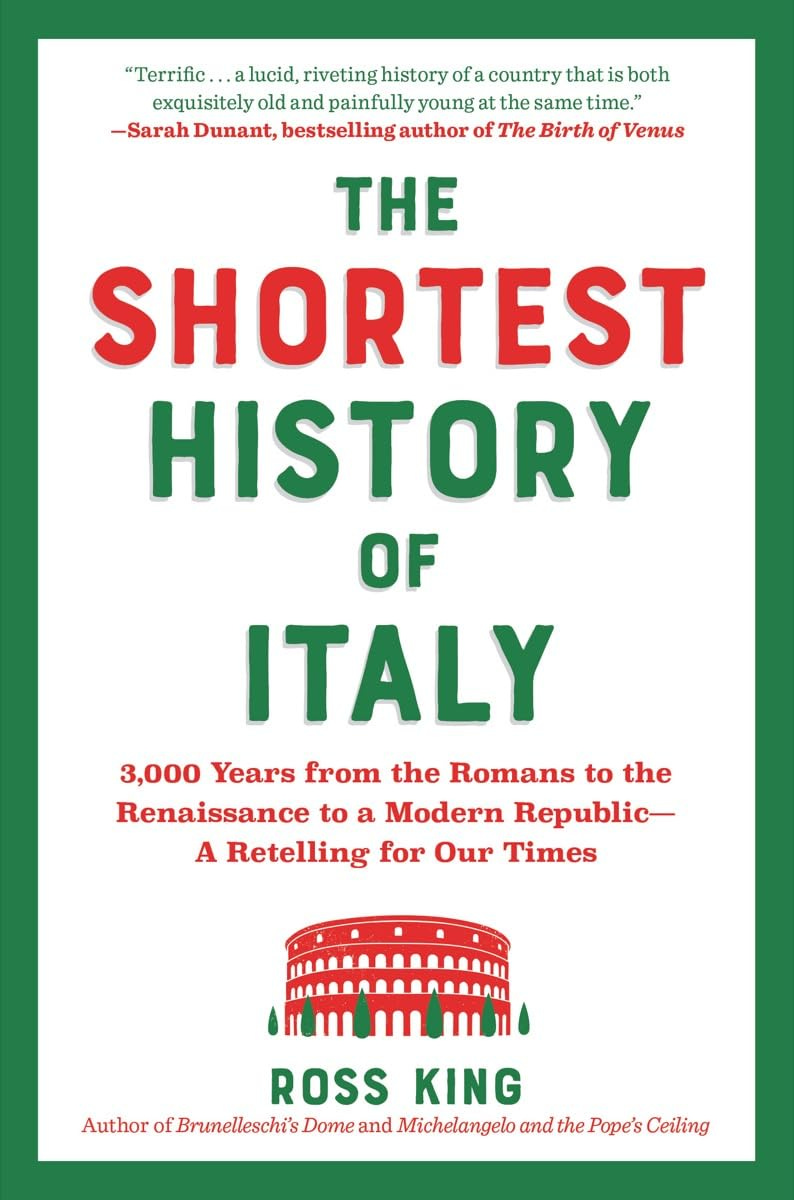One of my favorite expressions in Italian is “ogni morto di papa,” translated as “every time a pope dies,” the equivalent of our “once in a blue moon” in English. The phrase seems appropriate this week since the pope who just passed away was in office for twelve years. But I will leave topic of the papacy to professional vatican-watchers, of whom there are many, and also eschew any handicapping for the upcoming conclave. Instead I write today about books. Please excuse the bait and switch.
One would expect that someone who writes mystery novels would read mainly mystery novels. But in my case I mostly read non-fiction, and of that, mostly history, and within that category, a lot of history of Italy. So in this post I'll mention three history books on Italian topics that I have enjoyed, and which you substack readers might find of interest.
My fascination with Gabriele d'Annunzio began years ago when we visited his residence just north of Salo' overlooking Lake Garda. I had known about his fascist politics and his militarism, as well as his fame as a poet, but was not prepared for the wretched excess of his collecting. Il Vittoriale, as the villa is named, is a knick-knack lover's dream. When you enter each room you think that he couldn't possibly cram more stuff between four walls, and then the next one tops it. This may be one reason why d'Annunzio was constantly in debt, despite doing very well as a writer.
Living beyond his means is a constant theme in Hughes-Hallet's biography. As is his relations with women, which were scandalous at the time, giving him a reputation that did not displease him at all. The guy was a real bounder. His politics were, to say the least, complicated. While his militarism and nationalism appealed to the fascists, d'Annunzio was never involved in the party and didn't get along with Mussolini. In fact Il Duce saw him as a rival. So a lot of fascinating things here if you are interested in what was going on in Italy during the late nineteenth and early twentieth century.
Taking a longer view of Italian history is this one on the Roman roads, by British historian Catherine Fletcher. It turned out to not be the standard history book that I was expecting. In the beginning it is that, starting with the construction of the Via Appia and tracing the growth of the ancient road system, including much of the grid in England. She then writes about the importance of the roads throughout history, facilitating communication and commerce as well as moving pilgrims and invaders. But then it evolves into kind of a travelogue, with her describing her experience of traveling the roads, or what's left of them, herself. It worked well.
I stumbled upon this “shortest” series when I was looking for a brief history of the Brits and came across The Shortest History of England. I learned a lot, and then noticed that there was one on Italy. Why not? Even though I'd read dozens of books on Italian history, I figured there's always something new to learn. I was a bit wary of Ross King as the writer since he started out great with Bruneleschi's Dome, but for me his later books a bit of a disappointment. But he did well on this one. He takes the key periods, like republican Rome, the Renaissance, and the Mussolin era, and gives you the big picture while adding fascinating little details. Indeed, it is the trivia which makes the book fun.
In a fortnight, when it's time for another post, we should have seen the white smoke and a new pope should have come out on the balcony. So perhaps I'll write about my memories of the two papal elections that took place when I was living in Milano. Come to think of it, how about Cardinal Delpini of Milan for the top job?
As I usually write at the end of my posts, this substack is free, but the way you can support it is by getting one (or more) of my mysteries. Now there are nine of them and here's the complete list.. click here.








Seems like they used to live/reign longer ..... and they never 'retired'. With vocations dwindling as they are, where are they going to find candidates -- and especially. younger than 80, lol. I'm an apostate, so irreverence is my mean.
As to d'Annunzio -- what a hoarder ;-)